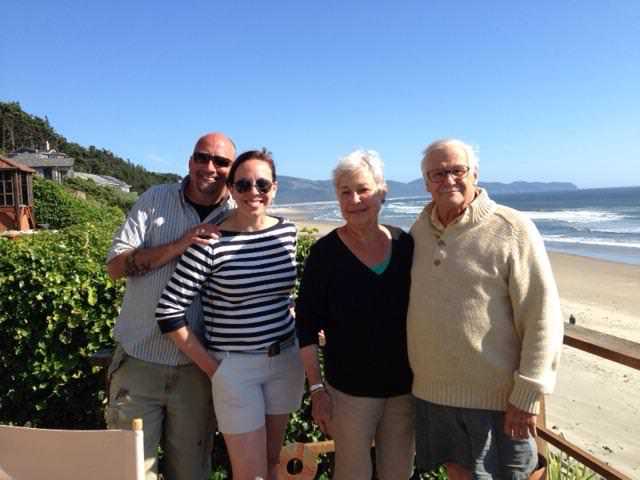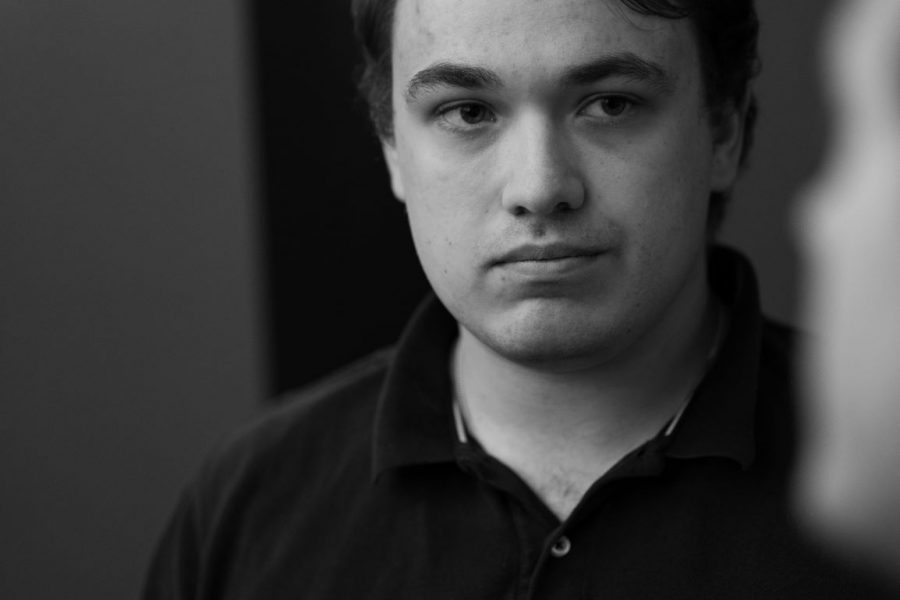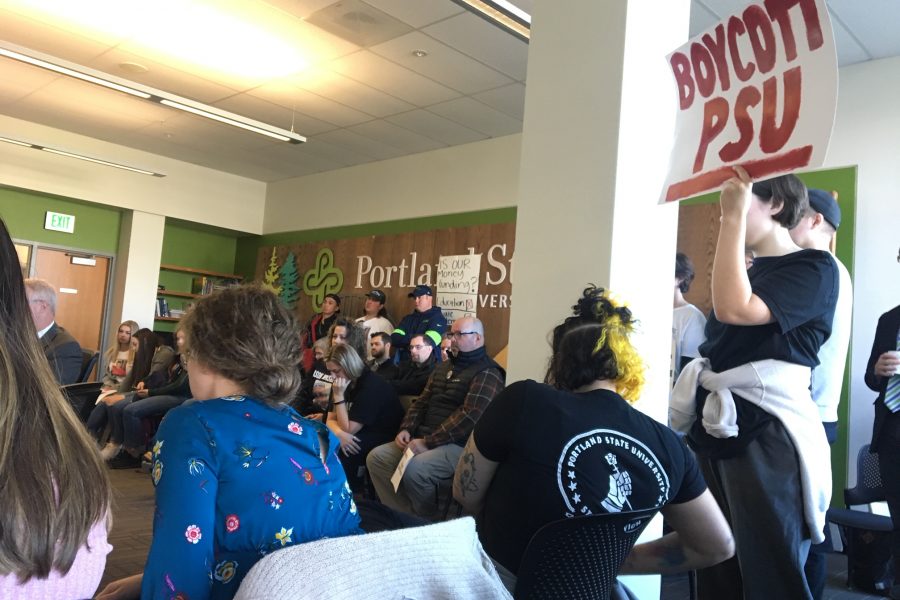For nearly 18 years, if you wandered into Market Street Pub on the edge of Portland State’s campus, you would find a man tucked into a booth, a Hammerhead Ale close at his fingertips and a newspaper by his side. Many days, you would also find sitting opposite him a young, idealistic student journalist, working through a difficult editorial decision or seeking advice for life during extended lunchtime conversations over pints and burgers. That man was Judson Randall.
Randall, former student publications advisor for the PSU Vanguard and its sister publications, died Sept. 17, 2019. During his time at PSU, Randall influenced hundreds of students, leaving a lasting impact on their lives and the institution.
Randall was born in Connecticut in 1937. He had a first attempt at college studying to become an engineer, but he always knew that wasn’t the path for him. He often told the story about how he decided to drop out and then was immediately drafted into the Army in the years between World War II and the Korean War.
After the Army, Randall went back to college, this time following his passion and graduating into the world of journalism at the height of the civil rights movement, the resistance to the Vietnam War, and when the profession was characterized by “All the President’s Men.”
Randall eventually found his way to Oregon, where he rose through the ranks at The Oregonian to become city editor. He retired from The Oregonian but wasn’t ready to hand in his editor pen just yet. He became the student publications advisor in 1995, which is where we met him and were changed forever by his mentorship. Randall thoughtfully impressed upon us the value of pursuing the truth, sharing his own rich professional experience and instilling a love of the written word in the process.
Though we always sought his advice, Jud never told us what to do as student journalists. He believed deeply in his role as a guide, as someone who sprinkled the breadcrumbs hoping we found the trail to lead us to the right answer. He dispensed the advice we asked for but did not invest in whether you actually took it and never issued an “I told you so” when failure to follow said advice ended in the disaster he silently predicted.
In addition to his work at PSU, Randall also co-founded the organization Open Oregon, a freedom of information coalition dedicated to strengthening and enforcing Oregon’s open meeting and open records laws. He believed public institutions had a responsibility to be transparent and the press had a duty to hold those entities accountable to the laws. Randall was also passionate about land use and protecting public lands. He sat on numerous boards in Washington County and on the Oregon coast, where he moved permanently upon his retirement from PSU.
Randall also modeled the values he encouraged us to embrace. Fairness, kindness and an unflinching eye on social justice. To embrace the journalistic maxim to afflict the comfortable, and comfort the afflicted. To turn around and look behind when everyone else was looking forward. To shine light into the dark corners and ask the hard questions. That tyranny persists when it hides in a black box and we all have a duty to rip open that box and shine a light on the truth. That truth with a capital T doesn’t exist, but truths abound. That love is worth risking it all, no matter your age.
Randall served as an example to us of what it means to live out your ideals. He hoped to leave us with those closely held beliefs as much as he wanted us to turn every use of the word “which” into a “that”—and then immediately delete as many uses of “that” as possible—and to appreciate that, in general, gerunds are evidence of lazy writing.
These ideals applied not only to our lives as student journalists at PSU but also to the way we live our lives as adults. Most of us did not go on to long-term or full-time careers in journalism, but many of us have dedicated our lives to public service—or to afflicting the comfortable and comforting the afflicted—as much as possible. We work in public policy, education and social services. We help veterans, non-traditional college students and promote diversity, equity and inclusion.
One of Randall’s favorite works was the poem “If” by Rudyard Kipling. He often quoted the opening and closing couplets when we faced hard decisions and the inevitable tension points student newspapers have with their institutions. “If you can keep your head when all about you/Are losing theirs and blaming it on you,/Yours is the Earth and everything that’s in it,/And—which is more—you’ll be a Man, my son!”
Though his wrinkles deepened over his 18 years working as the advisor for student media at PSU, the twinkle in Randall’s eyes never diminished. For all his hard-nose journalist background, you wouldn’t meet anyone more sentimental. He hugged hard and often, cried readily, laughed loudly and loved fiercely. Randall will be deeply missed by those of us who had the opportunity to work with him, but his effect on our lives will last forever.
John Wykoff, Editor-in-Chief, 1996–1997
Daniel Garcia, Editor-in-Chief, 1998–1999
Beth Tarasawa, Sports Editor, 1998–2002
Robert Shunk, Editor-in-Chief, 1999–2000
Andrea Barnum Shunk, Editor-in-Chief, 2000–2001
Erin Lloyd, Editor-in-Chief, 2001–2003
Christian Gaston, Editor-in-Chief, 2003–2005
Matt Petrie, Editor-in-Chief, 2005–2006
Owen R. Smith, Editor-in-Chief, 2006–2007
David Holley, Editor-in-Chief, 2007–2008
Erick Bengel, Editor-in-Chief, 2012–2013






